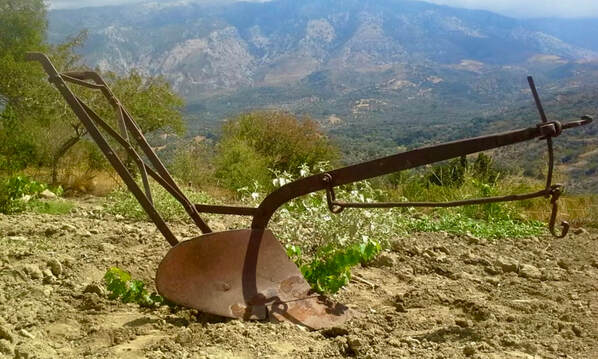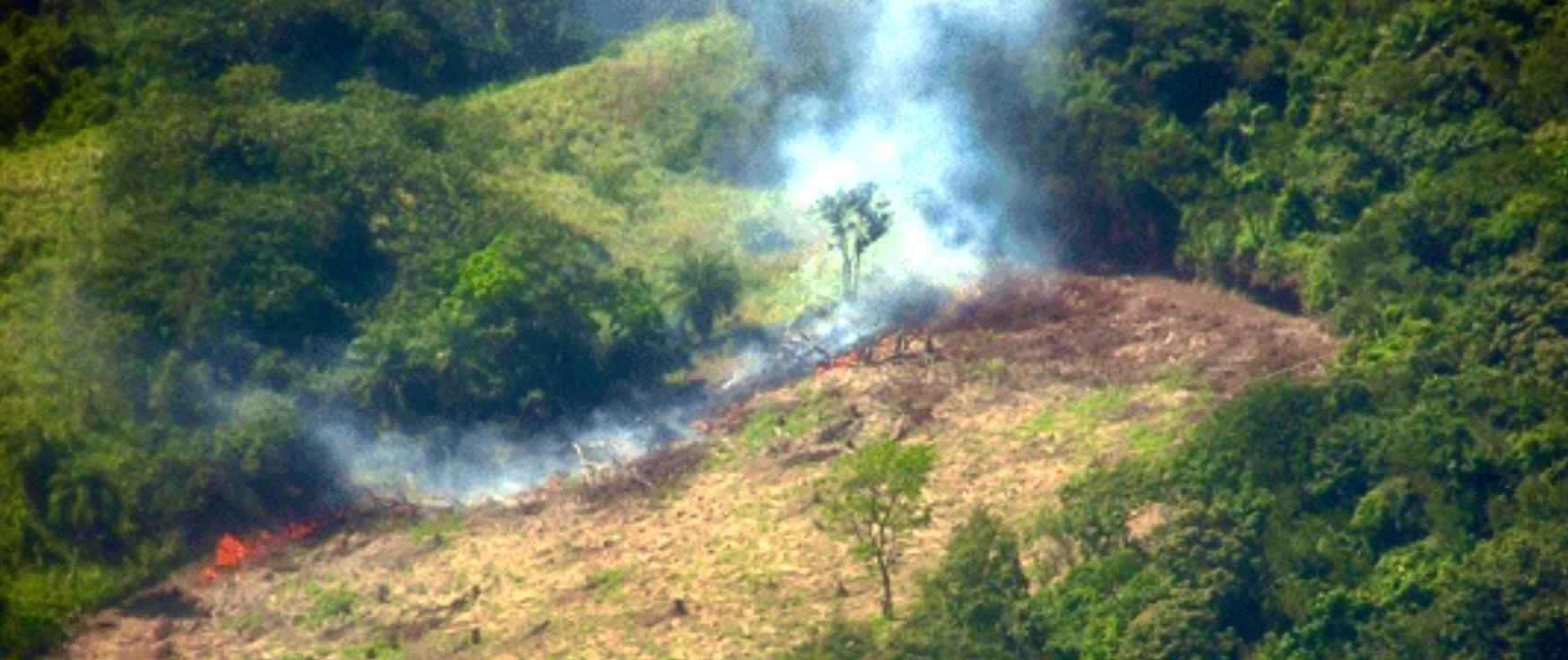|
(07/16/23)
|
Junglepixiebelize - Recollections of a Gringa Pioneer
Nancy R Koerner - Copyright@2023 - All Rights Reserved
CHAPTER SIXTY-FOUR
"Fire and Ice"
Pink, orange, golden sky. The smoky dry season haze drifting lazily over the Macal River valley. Eat a fat mango, standing naked, waist-deep in the water. Juice runs down my chin, dripping into the cool, clear green. Little sardines,pecking at floating bits of orange pulp. Burning skies, the color of god-flame – carnelian, tangerine, bronze, apricot, and mauve. One could not fail to be awestruck.
|
************
In March, as the dry season set in, it was time to prepare the ground for planting. By sheer luck, I’d found an old abandoned single-share plow while roaming the far-north end of the property. Rickety, but serviceable, and my malleable little mind was already scheming. Next thing, I had my old Singer sewing machine out, a half-dozen crocus bags laid alongside, and was on my way to designing a home-made horse collar. The fact that I hadn’t a clue of “how” to make one was unimportant. If “necessity was the mother of invention,” then that “mother” must have been Belizean. |
Guinness Stout, my old cattle horse – a gift from Escandar Bedran – stood patiently in the yard as I measured, sewed, and fitted the increasingly funky-looking collar around his neck. The end result was ridiculous piece of rigging made from the plastic fiber weave, with its awkward tie-ups, cordage, and dangling ropes – but at least it followed the necessary physical principles. The horse looked managed to look pitiful in his homemade regalia – but that didn’t stop him from giving me a disapproving, malignant glare. He was insulted. After all, Guinness had never dragged a plow before. But that was fair, I thought. I had never driven one either.
Although we were now ready to break up the stubborn earth, the stubborn earth had responded with “Oh, no, you’re not.” At this time of year, the clods of earth, matted with grass roots, had been baked to the consistency of bricks. The plow-share refused to make the initial “bite” into the ground. It might have been the faulty angle, my poor design, or maybe because the blade simply needed more weight. So, we dug a short, narrow slot into the ground with the pick-axe, right in front of the blade. As I led the horse forward, my husband guided the blade into the slot – then he jumped on the plowshare with both feet and all his weight. Thoroughly startled, the old gelding lurched forward, and soon, we had made a first cut, about 20 feet long. However, far from being the “straight, even furrow,” they showed in farming documentaries, our feeble slice looked like a dog’s hind leg. At the far end, my husband did the U-turn, looking ridiculous, and attempted a second pass. Unfortunately, I failed to stifle a small giggle. Oops. Well, it wasn’t the first time my warped sense of humour had taken me out of bystander position, and installed me in the proverbial driver’s seat. Although I took a few turns at steering the rig, as a 115 pound lightweight, my effort was even less effective than his had been.
In the end, we plowed a plot big enough for a kitchen garden, but would have expended less energy if we’d just used the pick-axe in the first place. (And it certainly would have saved Guinness some embarrassment.) Plus now, having brought these chunks-of-baked-brick to the surface, we had no disc harrow to break them up. The next step would have to be done by hand anyway.
Further from the house, we had used machetes to clear a small acreage for planting corn. But, instead of felling a piece of virgin forest, as the Maya did, we chose a section of secondary wamill. The chopped vegetation had lain on the ground since April, and now the torrid heat had dried it to a brittle tangle. Starting with bare charred earth, and fresh potash from the burn, the maize would sprout up, strong and proud, with a first hard rain. Planting was all about timing.
As rain clouds gathering on the horizon, we could see that two of our distant Macaw Bank neighbors to the south were laying fire to their kaan plantaysh. This needed to be a true first-rain of the season, not just a teaser, but no one wanted to take a chance on missing a clean burn before the June rains either. So, my husband lit a match at the far corner of the field, and together, we watched the blaze begin to sparkle and snap. This was to be a controlled burn, within the planned perimeter, so it did not run wild. Steadily, the blaze crept along the ground, consuming the grasses and smaller branches until it reached the heaped piles of thicker limbs and underbrush. Then flames leapt up. As the open areas gradually burned out, we used two long fresh-cut green poles to lever and consolidate the brush piles.
|
It was already ninety-five degrees in the shade. In the sun, temperatures were over one hundred. But even that seemed insignificant compared to the scorching fire. It was so hot near the flames that when I’d step back and merely stand in the sunshine, it felt like cool-shade. I adjusted the wet bandanna – intended to protect my hair from, literally, catching fire. My arms and legs burned with the scorching of the sun on one side, and the fire on the other. Sweat poured from my face as I wedged the pole under the burning brush and boosted it forward, little by little, toward the bigger flames. Suddenly, a limb burned through and the entire pile shifted. Out of nowhere, the tip of a hot poker sprang forward and touched lightly on my face just below my left temple, narrowly missing my eye. The skin hissed as I felt the hot sting, and smelled my own burning flesh. Screaming, I jumped backwards. Within seconds, a blister the size of a five-cents had formed.
|
I ran to the house for first aid – realizing that, although the tiny butane refrigerator was cool enough to preserve goats' milk for a day or two – it did not provide the luxury of ice. Anxiously, I drew water from the rain tank outside, but it was tepid at best. I wet a cloth and laid it on my blistered face. It did nothing for the pain. My four-year-old son had been watching from the front steps, and he had jumped up and followed me inside – his serious little face full of concern.
"What happened, Mommy?" asked my boy. "Fire burn you?"
"Yes, honey. Come give Mommy a hug."
The little boy crawled up into my lap. For the moment he was the big man, the comforter.
"Sorry, Mommy," he said, patting me. "Kiss and make better?"
"Thank you, sweetie," I murmured. I dipped the rag again.
Life on Alta Vista was mostly heaven, but sometimes it was also hell. When living in the bush, it was astonishing to think that ICE, the most basic therapy for burns, stings, bites, bruises, or headaches, was simply unavailable.
I looked again at my son, this time with fresh eyes. Suddenly realized how big he was getting. So far, the little boy had lived his whole life in the bush – with only in the company of his mother, father, with some goats and chickens for companions. He had almost never played with another child, and very soon, he would need to attend school.
It was a sober moment of reality for me. Life would be moving on.
"What happened, Mommy?" asked my boy. "Fire burn you?"
"Yes, honey. Come give Mommy a hug."
The little boy crawled up into my lap. For the moment he was the big man, the comforter.
"Sorry, Mommy," he said, patting me. "Kiss and make better?"
"Thank you, sweetie," I murmured. I dipped the rag again.
Life on Alta Vista was mostly heaven, but sometimes it was also hell. When living in the bush, it was astonishing to think that ICE, the most basic therapy for burns, stings, bites, bruises, or headaches, was simply unavailable.
I looked again at my son, this time with fresh eyes. Suddenly realized how big he was getting. So far, the little boy had lived his whole life in the bush – with only in the company of his mother, father, with some goats and chickens for companions. He had almost never played with another child, and very soon, he would need to attend school.
It was a sober moment of reality for me. Life would be moving on.




